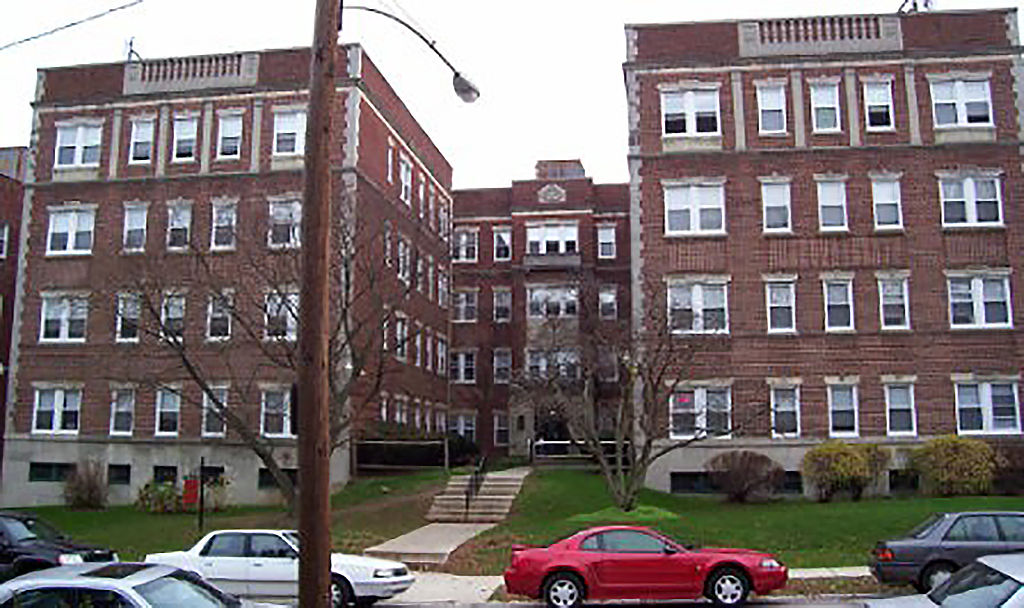Denver sets new requirement in fray over small lot parking exemption

The lengthy, contentious debate over a parking exemption for small lot developments in Denver reached a climax Monday, with the City Council voting to require on-site parking, despite objections from city planning and development staff and some residents.
The impetus of a city review of an otherwise rarely used parking exemption was the introduction of tiny house developments into already established Denver neighborhoods.
About 20 people from Denver neighborhoods spoke May 1 during a public hearing on the topic. There were mixed reactions to a parking requirement.
“Every dollar spent housing cars is a dollar not spent on housing people,” Denver resident John Riecke said. “Every dollar spent on unneeded parking is a dollar not circulating among local business. Every dollar spent to store a car is a dollar not spent buying shoes, or eating out or paying for medication or saving for retirement. Adding parking requirements, by definition, adds to the cost of living in Denver and reduces our quality of life.”
Sharing a different perspective, Denver resident George Mayl told Council members “unbridled” development and parking are top concerns for constituents according to a resident survey and officials have a responsibility to protect their neighborhoods.
“We hold you responsible for the protection of residential neighborhoods and smart development,” Mayl said.
Gertie Grant, a member of the West Washington Park Neighborhood Association, said the organization supported the amendment, recognizing that “it’s a compromise.”
“It’s not what everyone wants, but it’s a whole heck of a lot better than it was,” she said.
The City Council approved the revision to the parking exemption through a 9-2 vote with President Albus Brooks and Councilwoman Mary Beth Susman voting nay.
Under the original small lot parking policy, all lots zoned mixed-use commercial and 6,250 square feet or smaller — typically 50 feet wide and 150 feet deep — that existed as of June 25, 2010, were exempt from off-street parking requirements. The exemption was intended to encourage small lot reinvestment and adaptive reuse of buildings. The small lots make up about one half of one percent of all the land area in the city, according to city staff.
Under the revised small lot parking rules introduced by Councilman Jolon Clark Monday night, the first two stories for any new buildings on small lots will be exempt from parking, in so-called transit-rich areas — parts of the city within half a mile of a rail station or a quarter of a mile from good bus service. The first story will be exempt in other areas. A zoning permit, and an informational notice sent to neighbors, will be required for all developments seeking the exemption. All existing buildings, and 11 projects currently underway, will remain fully exempt, along with any future expansion.
Last summer, the City Council imposed a 7-month moratorium on new small lot development to buy more time for a group of stakeholders including neighborhood groups, affordable housing organizations, Historic Denver and city staff to flush out an amendment. Following months of discussion on the parking exemption, officials ran up against the expiration date of the moratorium. The City Council approved approved an extension to May 26.
The stakeholders group had produced what Brooks characterized as a compromise and supported as an amendment to the exemption, but two Council members publicly voiced concerns about the amendment, and it was ultimately killed. The amendment would have exempted parking for the first two stories for new developments and the first three floors on buildings close to public transit.
The night of May 1, Senior City Planner Jeff Hirt said the city’s Community and Development Department recommended the Council reject the amendment because it was counter to the city’s adopted plans. Requiring parking is in conflict with the city’s efforts to increase use of public transit and bicycling and reducing emphasis on cars, and would make re-developing small lots challenging and detract from affordable housing goals, Hirt argued.
Councilwoman Kendra Black said the exemption and both amendment proposals from Brooks and Clark were “incredibly imperfect” and the Council should come back to it, alongside neighborhood associations.
“We need a much more pointed and neighborhood-specific solution,” she said. “Every part of our city is unique.”
Susman said the revision is a step backward in the effort to reduce vehicles on the road.
“We want a walkable, bikeable community,” she said. “Neighbors are concerned about congestion and the top three issues in my district are traffic, traffic and traffic.”











